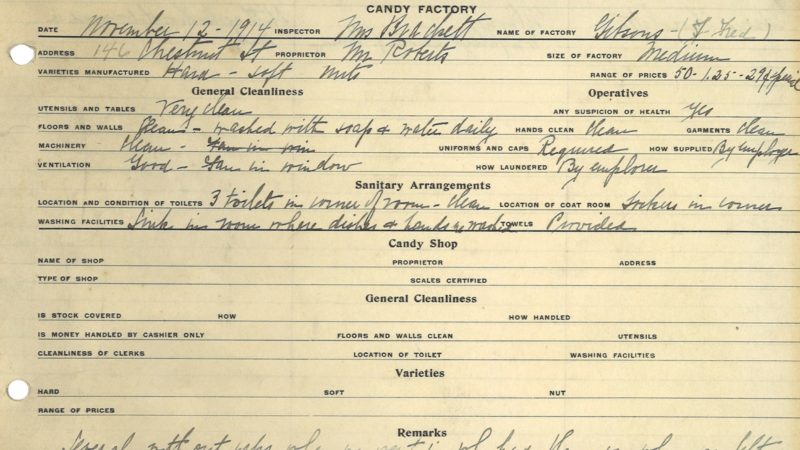
The Providence Housewives League
The Providence Housewives League held their first meeting on September 27, 1912, with an aim to organize and educate housewives on the economics of the home, particularly in regards to fair prices and access to clean, quality food. Shortly after coming together, this Providence group voted to become the local branch of the National Housewives League. In the 1920s, when their focus grew to include clothing services and the running of their Service Salvage Shop, the League shifted its affiliation to the American Homemaker League (MSS 33).
The League formed committees to investigate the sanitation of various food outlets such as bakeries, candy makers, soda fountains, and markets. Women inspected the shops and factories to record cleanliness, access to bathrooms, and sanitation efforts by the owners and staff. The League felt that an informed public would better be able to persuade shops to maintain healthy sanitation standards. Their reports included lists of shops that met standards as well as suggestions for improvement:
“Much of the candy sold is made of poor materials under dirty conditions. The League Hopes to help in securing a better grade to place on the market. Clerks in candy stores should not handle both candy and money.”
– Providence Housewives League, 1914-1915
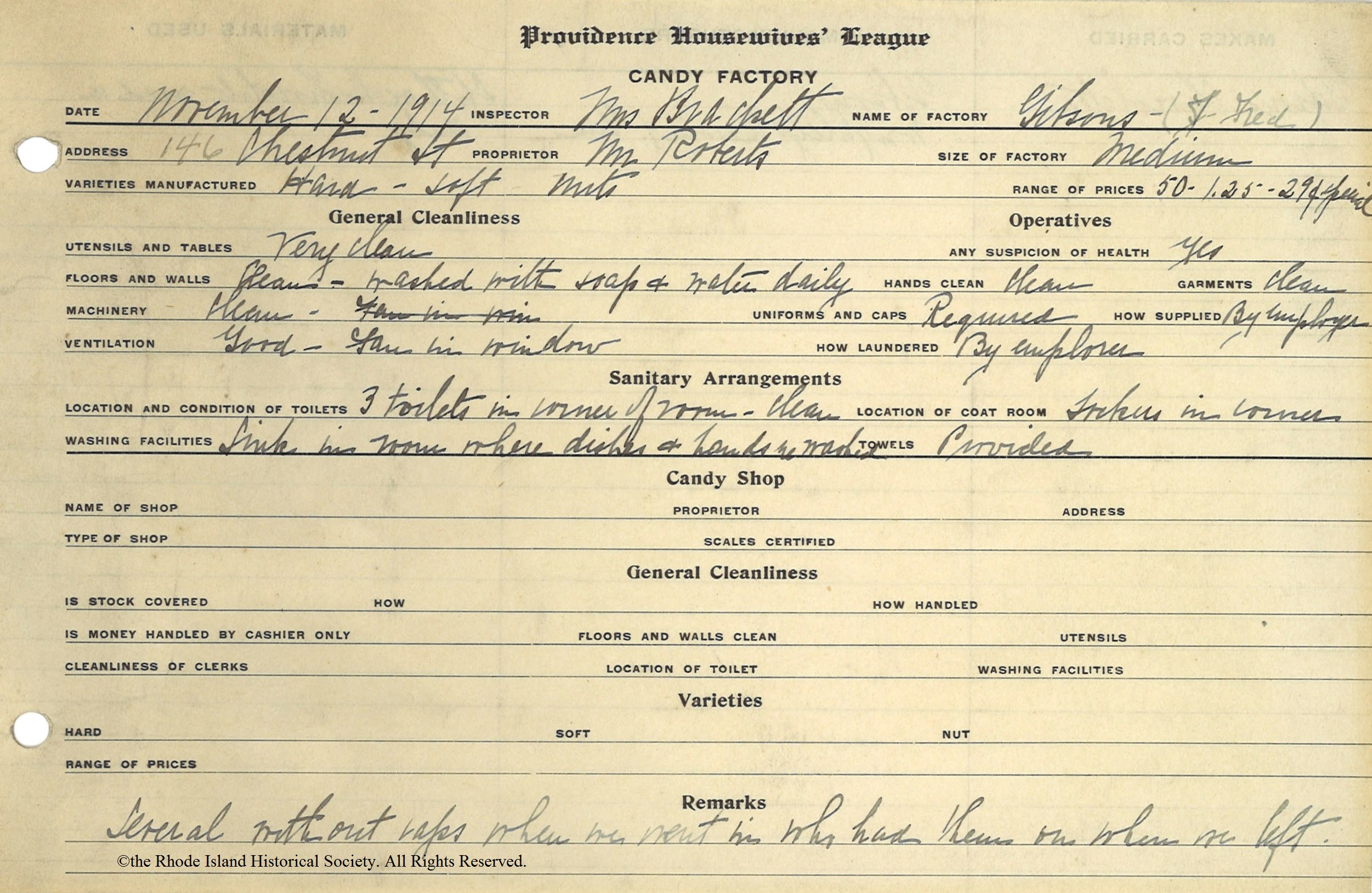
The Providence Housewives League’s goal was to educate the consumer and promote closer relationships between the food producers and those consumers:
“Our work of investigation has shown us that one of the greatest needs is education of the consumer. We are constantly meeting evidences of this need in unintelligent buying – true of all classes…. By unintelligent buying or unintelligent consumption, I mean a tendency to be governed by taste or price rather than by quality or food value; a demand for produce out of season, when cheap seasonable things are in market; an insistence upon having certain things because we have always had them, though poor crops or war conditions has made them high priced…. We have on our farms in Rhode Island delicious eating apples for which there is no market because the consumer buys the expensive (handsome but tasteless) California fruit. Prejudice stands in the way of the utilization of many of our natural resources.”
– Report of the President of the Providence Housewives League. Providence Housewives League Year Book, 1916-1917
Make Home Not War: American Homemakers and the Food Conservation Movement during WWI
As evidenced by the 1917-1918 Report of its President, the Providence Housewives League took on a vital role in food conservation and preservation during World War I (1914-1918).
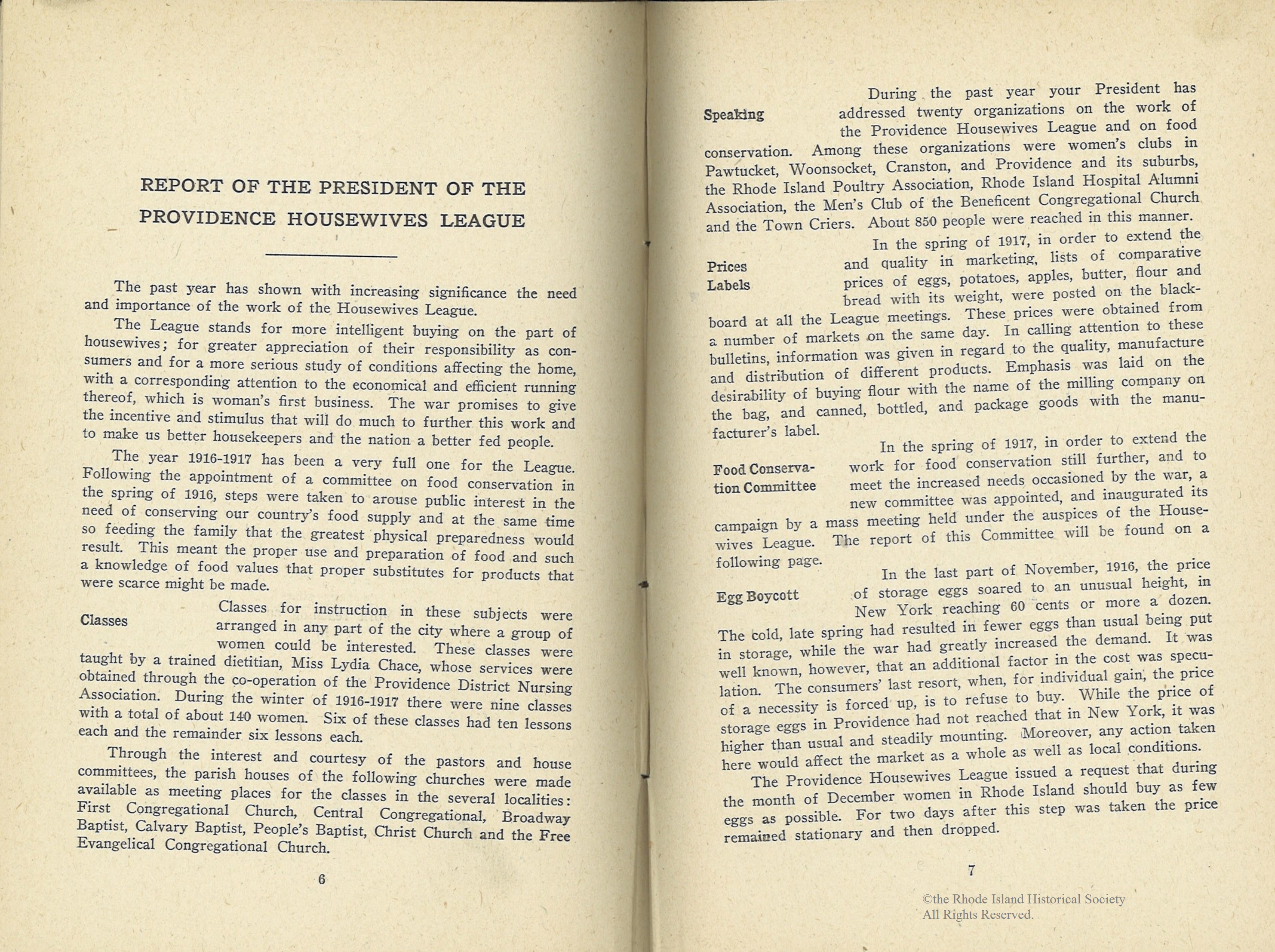
–Report of the Food Conservation Committee. Providence Housewives League Year Book, 1917-1918
To ensure the quality of their activities, the Food Conservation Committee called on the guidance and leadership of Mrs. Ida S. Harrington to become their Education Director.
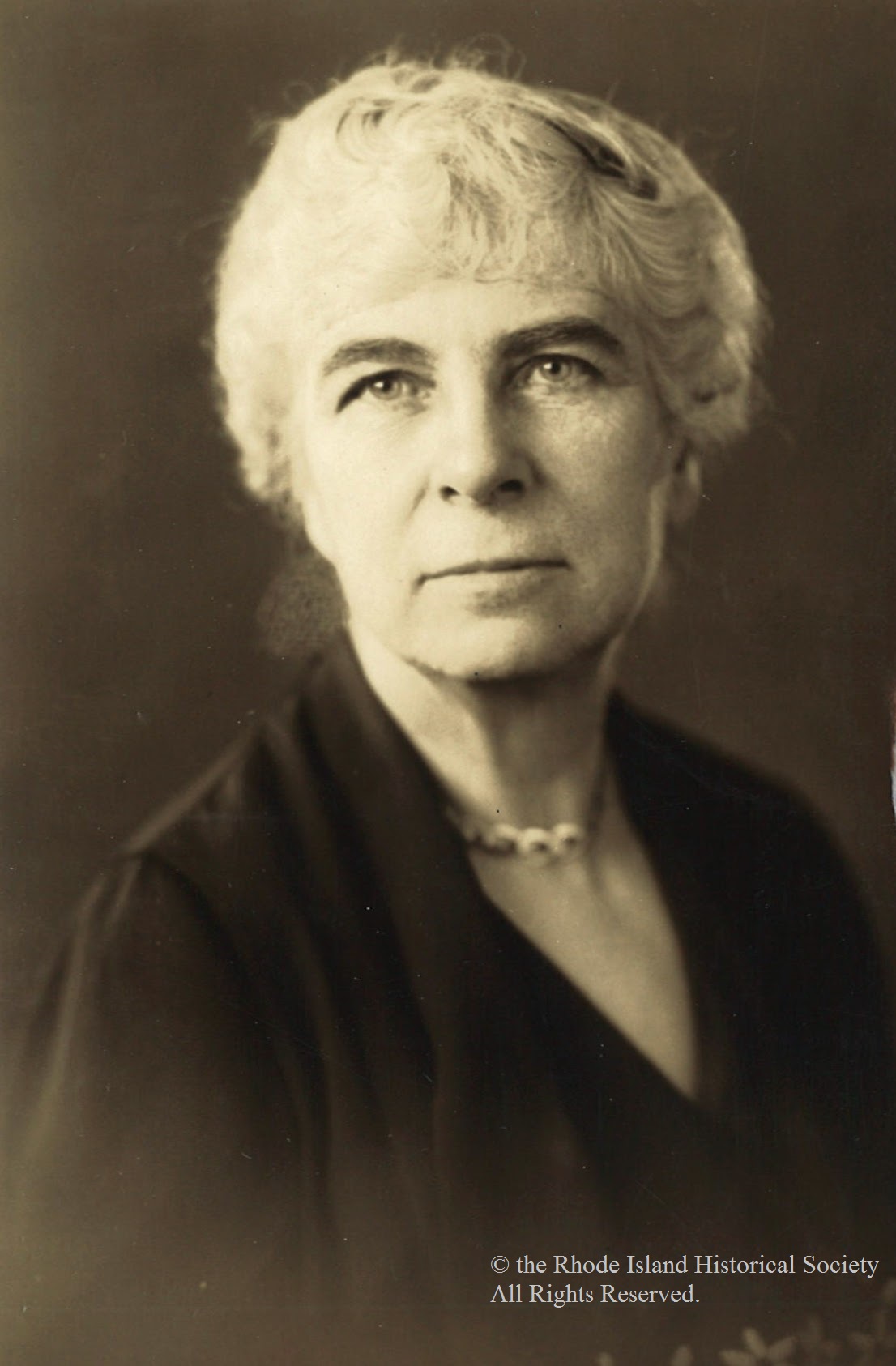
Cooking demonstrations were held at The Outlet Company, the Public Market, and R.L. Rose Company, who all supplied space, equipment, and materials necessary. The League brought in Miss Alice Bradley of Miss Farmer’s School of Cookery in Boston to teach the hugely successful series, with more than 1800 women in attendance throughout.
In addition to the cooking demonstrations, the Food Conservation Committee organized classes, and lectures to promote smart food consumerism, preparation, and storage.
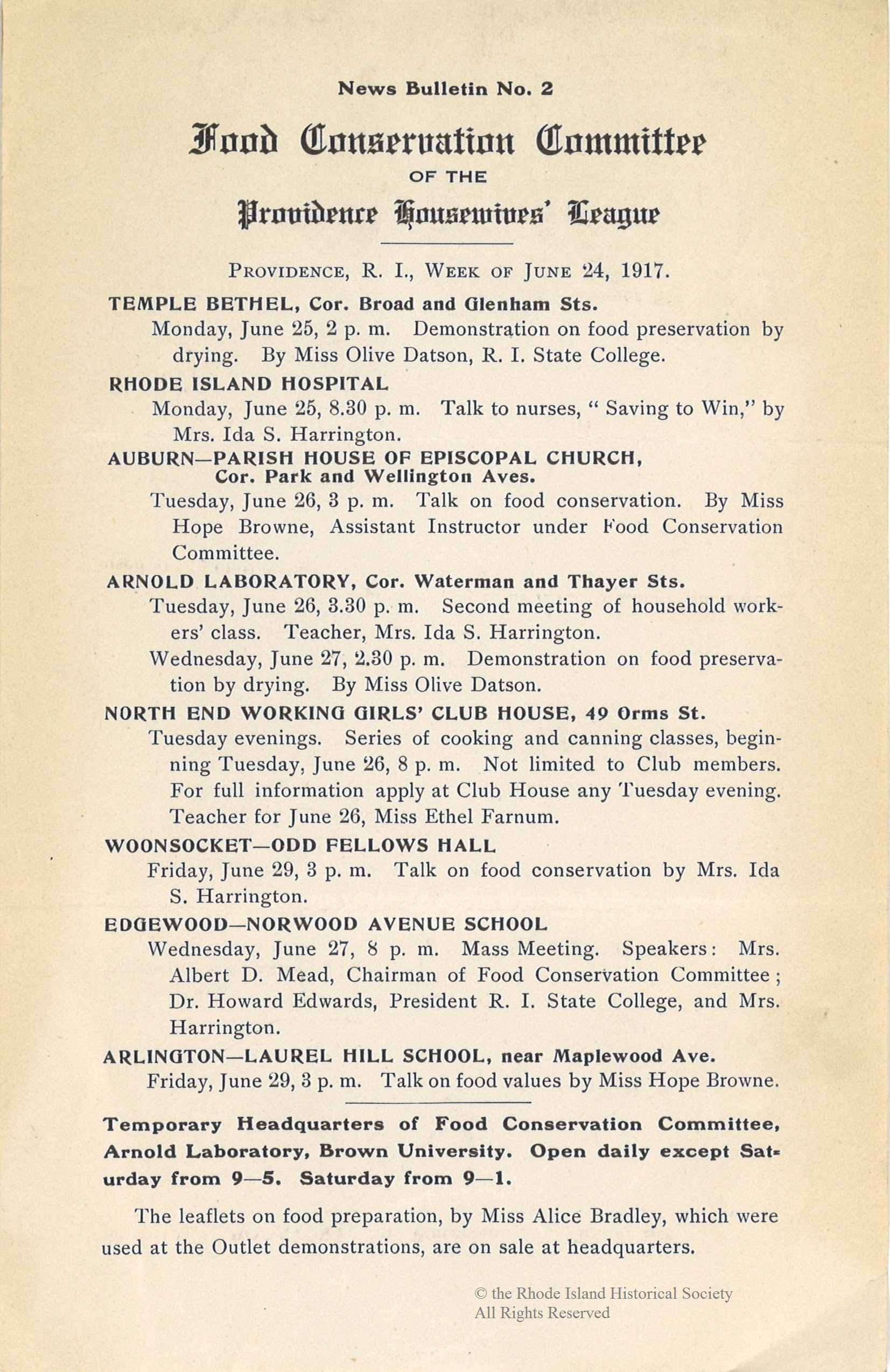
The Providence Housewives League continued to play a useful role in consumer and home economics education for the duration of the war. In the winter of 1918, the League opened a War Bread Shop because “there seemed to be a real need of reaching the great mass of people with an explanation of the best way to use wheat substitutes which they must buy.”
For more information on wheat during World War One, check out this article from NPR’S The Salt: Save the Fleet Eat Less Wheat: The Patriotic History of Ditching Bread.
The work of the League did not end with the First World War, remaining active in Rhode Island until 1946.
~Michelle Chiles, MLIS, Research Center Coordinator

3 thoughts on “Rhode Island Women in Action: A Force for Local Food”